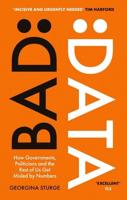Publisher's Synopsis
Important differences persist between rural and urban America, despite profound economic changes and the notorious homogenizing influence of the media. As Glenn V. Fuguitt, David L. Brown, and Calvin L. Beale show in Rural and Small Town America, the much-heralded disappearance of small town life has not come to pass, and the nonmetropolitan population still constitutes a significant dimension of our nation's social structure. Based on census and other recent survey data, this impressive study provides a detailed and comparative picture of rural America. The authors find that size of place is a critical demographic factor, affecting population composition (rural populations are older and more predominantly male than urban populations), the distribution of poverty (urban poverty tends to be concentrated in neighborhoods; rural poverty may extend over large blocks of counties), and employment opportunities (job quality and income are lower in rural areas, though rural occupational patterns are converging with those of urban areas). In general, rural and small town America still lags behind urban America on many indicators of social well-being. Pointing out that rural life is no longer synonymous with farming, the authors explore variations among nonmetropolitan populations. They also trace the impact of major national trends-the nonmetropolitan growth spurt of the 1970s and its current reversal, for example, or changing fertility rates-on rural life and on the relationship between metropolitan and nonmetropolitan communities. By describing the special characteristics and needs of rural populations as well as the features they share with urban America, this book clearly demonstrates that a more accurate picture of nonmetropolitan life is essential to understanding the larger dynamics of our society. A Volume in the Russell Sage Foundation Census Series










